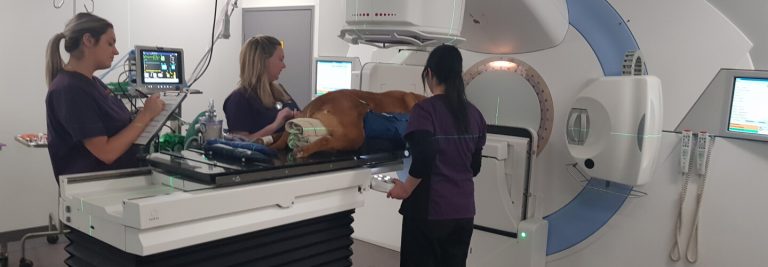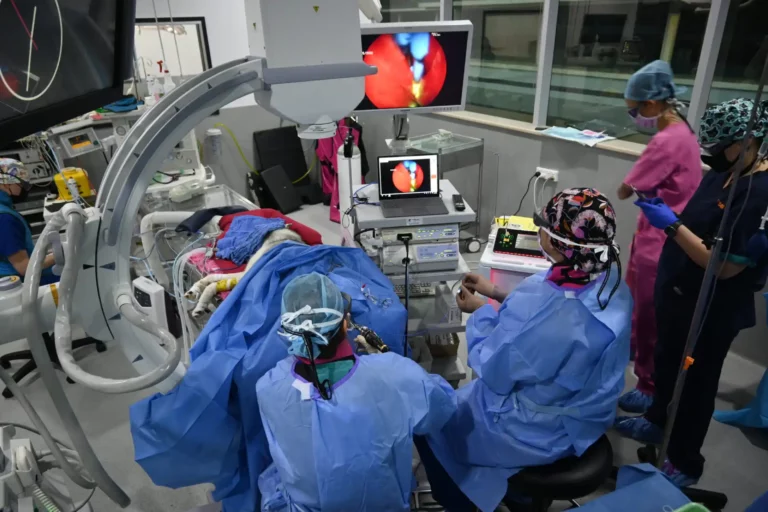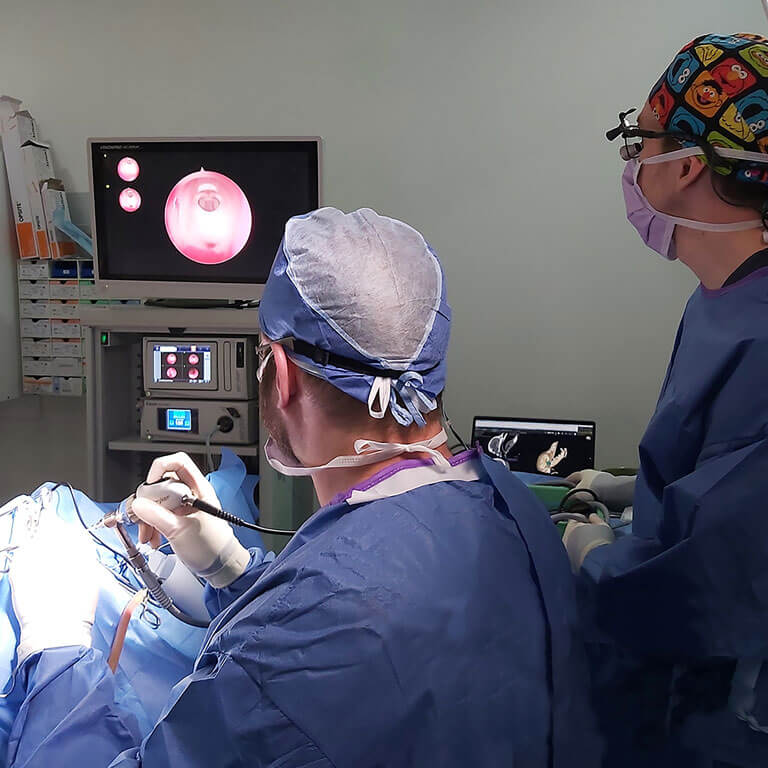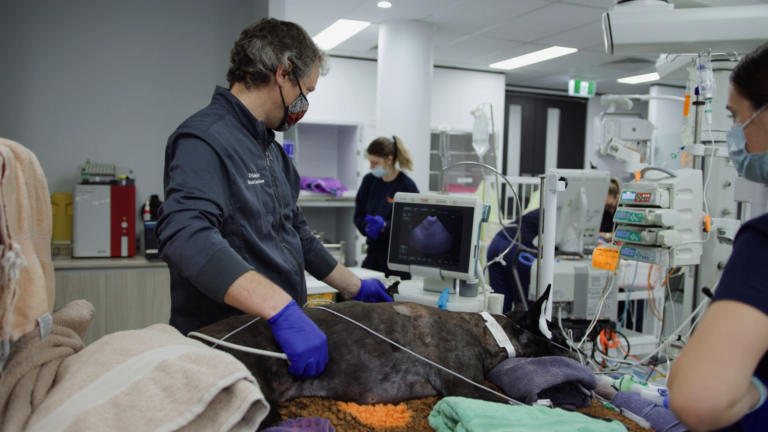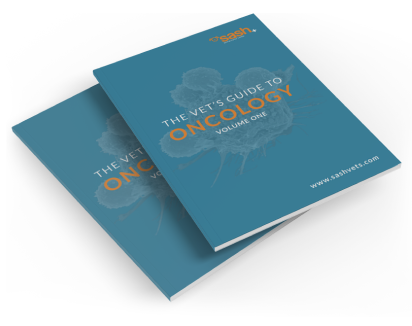Vet Oncologists providing cancer treatment for dogs, cats and small animals
SASH Medical Oncology highlights:
- One of Australia’s largest and most experienced team of Specialists in Oncology
- Providing cancer treatment for pets, such as chemotherapy and immunotherapy
- Effective long term control of cancer and improved quality of life, while minimising side effects
- Part of the SASH Cancer Centre, capable of also offering radiation and surgical treatment options
To best serve the needs of pets with cancer, and to support the people who love and care for them, we strive to offer compassion and understanding, to provide guidance to empower decision making, and to give pets and their families access to the most appropriate and up to date treatment options at our dedicated Animal Cancer Centre.
We recommend visiting our Animal Cancer Centre page to find out more about how our Medical, Surgical and Radiation Oncology teams work together to help families and referring veterinarians when pets are diagnosed with cancer.
The information below provides more detail about our Medical Oncology services.
Medical Oncology - Animal Cancer Treatment
The caring and dedicated team of Medical Oncology specialists at SASH serves patients and their families by interpreting diagnostic information after cancer is identified and treating cancer using various types of medically based therapies.
The key to developing the most suitable treatment plan for a pet with cancer is to have a detailed diagnosis. There are many different types of cancer, and several of these are further divided into subtypes. Cancers also differ in the way they develop at a particular location in the body, and in the way they spread (‘metastastise’). The more that is known about the cancer in an individual patient, the better the treatment can be designed to support the pet’s quality of life. For this reason, when a pet first comes to SASH, our Medical Oncology team may need to do further testing, to expand on the information provided by tests done before referral
Once the type and stage of cancer have been carefully identified, we can determine the ideal treatment plan. Depending on the circumstances of each patient, including the personal wishes of their families, this may include medical therapy, surgery and radiation, alone or in combination.
We are fortunate at SASH that our specialist medical, surgical and radiation oncology teams can collaborate in developing the most appropriate recommendations. This multi-disciplinary, cooperative approach gives families the information they need from the outset, to help them make choices with confidence, and gives pets access to the highest standards of integrated oncology care.
In addition, the full range of specialist treatment services can be provided by on-site teams using facilities located within the Animal Cancer Centre. This means pets can complete their treatment in familiar surroundings, with the same supportive team.
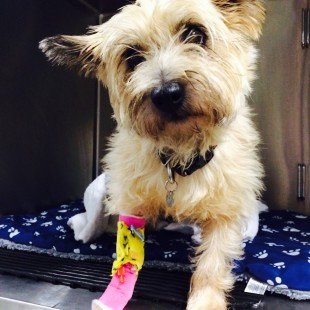
What is Medical Oncology?
Medical treatments for cancer include chemotherapy and, more recently, immunotherapies (e.g., vaccines), and drugs that inhibit cancer growth in targeted ways. As different types of cancer respond in various ways to particular medical therapies, the choice of medication is specifically tailored for each pet.
Chemotherapy involves treatment with drugs that kill rapidly dividing cells. The thought of chemotherapy can understandably be worrying. However, the experience of chemotherapy in pets is quite different to that of humans. Most pets tolerate chemotherapy quite well. Side effects can occur, but they are rare and are usually mild and transient. Hair loss is uncommon and, with optimal selection of drugs and doses, the likelihood of side effects such as vomiting and diarrhoea is minimised. If side effects do occur, we collaborate with other specialist teams at SASH, and with referring vets, to make the pet as comfortable as possible as quickly as possible, with the least amount of stress for pets and their families.
Newer treatments such as immunotherapy and targeted anti-cancer drugs are revolutionising the management of certain types of cancer in humans. SASH is actively involved in applying these therapies in the veterinary field. These include a vaccine for melanoma and tyrosine kinase inhibitors for certain types of primary and secondary (metastatic) cancer. With ongoing advances in medical oncology, we will continue to expand our range of therapies, in keeping with our purpose to ensure that our patients have access to the latest treatment options.
Where does treatment take place?
Whilst some types of medical cancer treatment require pets to visit our hospital, some oral treatments can be given at home. During the treatment period, we communicate with referring veterinarians about each pet’s progress, and work together with them where possible to monitor the pet’s blood cells and internal organ function, as these can be affected by the medications.
Visits to the SASH medical oncology department can be scheduled Monday to Saturday in both the morning and afternoon. Most procedures and treatments can be performed within a couple of hours or within the same day.
